LURID: vivid in shocking detail; sensational, horrible in savagery or violence, or, a guide to the merits of the kind of Bad Books you never want your co-workers to know you're reading.
Motherhood – as the Catholic Church and Mommy bloggers everywhere will tell you – is a divine state of being. The act of squeezing out a human pup confers both instant and lifelong rewards. The gift of Motherhood showers the recipient with a raft of desirable qualities – patience, humility, altruism, stellar poop handling skills – and sets her on a journey of self-sacrifice, tending to the needs of her mewling infant without giving her own wants and desires a second thought. Motherhood transforms even the growliest riot grrls into bosomly, cupcake-baking, Swiffer-wielding, school-run-coordinating domestic goddesses. They evolve into contented, fulfilled women, who’ve discovered that the greatest happiness available in this life comes from holding that little baby in your arms. Motherhood takes the crude clay of an ordinary woman and crafts her into a porcelain saint.
At least, that’s the official spin. Unfortunately, it doesn’t work that way for everyone. Motherhood can also be a curse, destroying physical and mental health, bringing poverty and depression, frustrating ambition. Children can be the bane of a mother’s life – selfish, squalling brats without boundaries, whose sense of entitlement even into adulthood knows no limits. Motherhood can make a woman lose her career, her teeth, and her sanity. Mothers who kick against the demands of motherhood, who resent their offspring, who refuse to conform to the child-centered Madonna-ideal, who fail to meet externally imposed (often by centuries-old religious texts) standards of maternity are judged harshly from all sides. Their sons and daughters are encouraged to accuse them for their inadequacies – often publicly. There are whole branches of psychiatry devoted to mother-blaming, sections in bookstores dedicated to Mom-fucked-me-up memoirs, and political parties focused on attacking mothers (especially single mothers) as the root cause of everything from crime to ADHD. What woman in her right mind would sign up for that kind of target on her back?
You’d think that the whole messy, painful, uncertain process of Motherhood would be consigned to history by now. Back in 1932, Aldous Huxley envisioned a Brave New World where even the word “Mother” was outmoded, a never-whispered obscenity referring to our animal past. Humans would be gestated in vitro, and raised in mentally and environmentally sanitary nurseries. They would grow up conditioned according to society’s needs, rather than according to the whims of an individual. Women would have achieved true equality to men, able to live useful, career-orientated lives without subjecting themselves to the indignity of pregnancy, or requiring awkward periods of maternity leave. The whole notion of Motherhood would be considered grotesque: the nightmarish climax of Brave New World involves the appearance of a woman who has – horror of horrors -- given birth (“a strange and terrifying monster of middle-agedness”). Huxley estimated the human race would reach this apogee of reproductive sophistication by 2450, so there’s hope for us yet.
In the meantime, we need to admit that not every woman makes a good mother, and that bad mothers do their bit to make the world go round. They certainly make life more interesting than the dull, do-good Moms who stay in the background quietly packing their progeny’s lunchboxes. From Joan Crawford to Casey Anthony, we’re fascinated by news or memoir about any woman who dares to desecrate the sacred temple of Motherhood by prioritizing her need to party hearty over spending quality time with her kids.
In fiction too, bad mothers drive some of the most memorable Bad Books, and some classic literature. Readers love a disruptive femme, especially one who inverts the supposed self-sacrifice of Motherhood for self-serving ends. Bad Mothers are challenged by and challenging to the social order. For centuries, the only political power available to women was vested in their ability to bear sons and, once those sons were born, their capacity to influence them into adulthood. Under these conditions, good mothers popped out a male sprog (or at least an heir and a spare) then faded into the background.
Bad Mothers, by contrast, refused to give up the spotlight and did their utmost to pervert the patrilinear status quo by maintaining a hold over their sons – or, if need be, by dropping them on their heads. Lady Macbeth neatly sums up this power-hungerer’s approach to childcare:
I have given suck, and know
How tender 'tis to love the babe that milks me:
I would, while it was smiling in my face,
Have pluck'd my nipple from his boneless gums,
And dash'd the brains out…
The presence of a Bad Mother in a story means all bets are off. If she refuses to play by the rules of meek ‘n’ mild Good Motherhood, then this lady is going to tramp all over the expected game plan. She’s liable to be unpredictable, downright contrary, and prone to tossing spanners into the linear narrative’s works. She answers to no one and is a law unto herself, like Grendel’s Mother, “that female horror”, who gives hero Beowulf a nasty shock – he thought he’d slain the beast.
A Bad Mother tends to be out of control in other areas, especially sexually, like Scarlett O’Hara in Gone With The Wind, whose slapdash approach to mothering leads to the death of her little girl (and the further destruction of the happiness of those around her), or Cathy Ames in East of Eden, whose flight from maternal responsibility leads to all kinds of problems when she’s re-united with her grown-up sons. Nonetheless, a Bad Mother often nurtures the most compelling and conflicted children, like X-Men’s Mystique, who spawned Graydon Creed and Nightcrawler, as well as adopting Rogue, or Norma, mother of Psycho’s Norman Bates. A Bad Mother, in her own inimitable way, is always more dynamic than a good one, and we should celebrate her for her dark energy and sheer entertainment value – whilst thanking our lucky stars she’s not ours.
Here, therefore, is a Mother’s Day special, a fragrant bouquet of Bad Mothers across the ages, who’ve clawed themselves a very special place within our hearts. It’s worth noting how many of them stand as cautionary tales. Bad Motherhood is a temporary state of being – inevitably, challenging the natural order of maternal submission means a Bad Mother is more than likely to come to a sticky end.
![]() 1. Lilith
1. Lilith
Horror fiction favorite Lilith is the Mother of All Bad Mothers, the original uppity broad who refused to be tied down by motherhood. There are many stories told about her in Hebraic myth. Lilith was Adam’s first wife, before Eve, but she rebelled against both her creator and her husband and continued to exist as a she-demon, coupling with archangels and other demons and giving birth to djinns and lilim. Because her children are monstrous and/or doomed to die, she has vowed hatred of all human infants, and prowls the world at night, killing newborns. Her beauty, rage, long red hair and fascination with her own reflection as a mirror have intrigued many artists throughout history, and she crops up as a character everywhere from poetry and paintings by the Pre-Raphaelites to TV shows True Blood and Supernatural, and Cassandra Clare’s current YA novel series, The Mortal Instruments.
Get The Mortal Instruments at Bookshop or Amazon
![]() 2. Medea
2. Medea
In Greek myth, Medea first appears in the story of Jason and the Golden Fleece, using her witchy powers to help the hero retrieve the glittering sheepskin and so claim his inheritance. She proved to be a useful ally, providing potions and mind tricks to help Jason overcome every obstacle between him and the Fleece. In return, she asked him to marry her, which he did, and she bore him two children, Mermeros and Pheres. Theirs was not a happily ever after. His adventures over, Jason sought excitement in an affair with Glauce, a princess of Corinth. Medea’s revenge was swift and absolute: she poisoned Glauce, and murdered her two sons by Jason. She fled to Athens, where she married Aegeus. When Aegeus’s long-lost son, Theseus, re-appeared, Medea attempted to poison him too. The act of maternal infanticide is now dubbed ‘Medea Syndrome’ in her honor. In classical literature, Euripedes, Ovid, Seneca and Herodotus all created versions of her story. Her vengeful wrath continues to resonate with modern audiences: Lars Von Trier has told her story on Danish television (Medea, 1988) and she’s inspired characters in novels by writers as diverse as Rick Riordan and Christa Wolf.
Get Medea at Amazon
![]() 3. Morgause
3. Morgause
In Arthurian tradition, Queen Morgause (‘The Mother of Ruin’) was Morgan le Fay’s sister. She married Lot, the King of Orkney, and bore him six children (sons Gawain, Agravain, Gaheris, and Gareth, and daughters Clarissant and Soredamor). When her husband picked the losing side in battle against the rising young King Arthur, Morgause abandoned her marital bed and seduced the victor – unaware that Arthur was her half-brother. Ooops! Their romp resulted in a son, Mordred, who Morgause raised as though he was Lot’s. Her four older sons served as Knights of the Round Table, and Morgause remained involved in court intrigue, putting her own pleasures and political schemes ahead of the careers (and dignity) of her sons. It could only end in tears. When Gaheris discovered her in bed with Sir Lamorak, he chopped off her head and framed Lamorak for the murder. Morgause pops up as a key player everywhere in Camelot narratives, from Sir Thomas Malory’s Le Morte D’Arthur (1485) to modern re-tellings. She’s a major figure in T.H. White’s The Queen of Air And Darkness (1939) (although that depiction owes a great deal to White’s rather complicated relationship with his own mother), Gillian Bradshaw’s Hawk of May (part of the Down The Long Wind trilogy), and was chief villainess in the recent BBC series Merlin.
Get Hawk of May at Amazon
![]() 4. Eleanor Iselin
4. Eleanor Iselin
Medea and Morgause could each see a twentieth-century version of herself in mother of The Manchurian Candidate, Eleanor Iselin. Eleanor is brutally, even criminally ambitious, and thinks nothing of using her husbands and son as tools to further her career. Precision tools, honed over years and minutely manipulated to achieve the desired effect. Eleanor is gloriously, unashamedly Machivellian, especially when it comes to dominating her snarling, but ultimately submissive son, Raymond. She has a fine sense of occasion and theatricality when it comes to her dirtiest deeds, lying in wait for her son one night, garbed “like a mail-order goddess”. She
...was wearing a fantastically beautiful Chinese house coat. It was orange-red. It had a deep black Elizabethan collar that stood up straight behind and around her shining blond head, in the mode of wicked witches, but it made her look very lovely and very kind and she smelled very beautiful and enlightened as Raymond dragged his dread behind him into the room, sickened to find her awake so late.
Although Raymond briefly thinks “I have wanted to kill her for all of these years and now it is too late”, he is so conditioned and controlled to do his Bad Mother’s bidding he cannot resist her commands. And she’s willing and eager to throw him under the bus in service of her goals.
Get The Manchurian Candidate at Amazon
![]() 5. Charlotte Haze
5. Charlotte Haze
Charlotte Haze is a Bad Mother through apathy, rather than ambition. She remains blissfully unaware of the truly dark intentions of her lodger, Humbert Humbert, towards her 12 year-old daughter, Dolores, otherwise known as Lolita. Or, if she does have an inkling about the tumescent obsession flowering under her roof, she doesn’t show it, and instead keeps her eye on the main prize: marriage to Humbert. She delivers an eviction note to end them all (leave the house by tonight, or declare “you want me as much as I do you: as a lifelong mate; and that you are ready to link up your life with mine forever and ever”), and, once the vows have been read, wastes no time in demonstrating that she’s much more interested in having a husband than a daughter. Humbert can barely contain his horror at the way Charlotte regards ‘Lo:
Oh, she simply hated her daughter! What I thought especially vicious was that she had gone out of her way to answer with great diligence the questionnaires in a fool’s book she had (A Guide to Your Child’s Development), published in Chicago. The rigmarole went year by year, and Mom was supposed to fill out a kind of inventory at each of her child’s birthdays. On Lo’s twelfth, January 1, 1947, Charlotte Haze, ne Becker, had underlined the following epithets, ten out of forty, under “Your Child’s Personality”: aggressive, boisterous, critical, distrustful, impatient, irritable, inquisitive, listless, negativistic (underlined twice) and obstinate.
Charlotte has already lost one child, an infant boy, and when she proves all too willing to discard her daughter too (“Little Lo goes straight from camp to a good boarding school with strict discipline and some sound religious training”) Humbert feels it’s up to him to punish her for her lack of maternal fidelity.
Get Lolita at Bookshop or Amazon
![]() 6. Margaret White
6. Margaret White
Margaret White, on the other hand, maintains an iron grip over her little cherub. There will be no drug-addled sojourns with stepfathers in dodgy hotels for her daughter, Carrie. Margaret is a bad mother from the start – she refuses to admit she is pregnant, and hopes instead that her symptoms come from cancer, rather than a growing fetus. After giving birth alone, at home (and hacking through the umbilical cord with a kitchen knife), Margaret raises Carrie according to strict fundamentalist ignorance. Thanks to her childhood conditioning, by the time she’s a teenager Carrie is regarded by her schoolmates and teachers as “a fat, whiny bag of lard”, and not even the power of prayer can help her – although Margaret keeps trying this child-rearing technique, along with physical beatings and mental torture. Margaret ends up paying the ultimate price for her Bad Motherhood — specifically, her failure to have that mother-daughter heart-to-heart about 'Your First Period' — as do a lot of unfortunate bystanders.
Get Carrie at Bookshop or Amazon
![]() 7. Corrine Dollanganger
7. Corrine Dollanganger
Virginia Andrews truly appreciated the dramatic value of a Bad Mother and peopled her sagas accordingly. Her most famous example, Corrine Dollanganger, starts out as picture of maternal perfection, idolized by her four children (her daughter, Cathy, describes her as “a creature so ravishingly beautiful she didn’t look real”), but she turns out to be a Bad Mother deep in her bones. She learned from the best – her own mother, Olivia, doyenne of twisted family relationships – but takes Bad Motherhood to new depths with her plan to lock her kids in the attic, deny their existence, and poison them slowly with arsenic-laced doughnuts so she can claim her inheritance. And she does it with such charm, lying to her children about how much she loves them, showering them with expensive gifts, promising them that their imprisonment won’t last for much longer. And it’s all because she refuses to get a job and work for a living to support her kids, preferring to gad about spending her Daddy’s money on jewellery and furs. Naturally, after being set this terrible example, Cathy turns out to be a Bad Mother too – that’s just part of the endless cycle of payback that drive generations of Dollangangers through four more lurid volumes, Flowers In The Attic, Petals On The Wind, If There Be Thorns, Seeds of Yesterday.
Get Flowers in the Attic at Bookshop or Amazon
![]() 8. Beth Jarrett
8. Beth Jarrett
Beth Jarrett is also a superficially Perfect Mom, the obsessive homemaker who has managed to get through the death of one son and the suicide attempt of another with a calmly sociable smile plastered on her face. She’s the quietest monster of the Bad Mothers listed here, but her lack of emotional engagement with her family is chilling. She doesn’t cry at Buck’s funeral. She’d rather play golf than spend Christmas with her surviving son, Conrad – in fact, she’d rather play golf than do almost anything. As long as her house is neat and the neighbors admire her status symbols, she’s happy. In Beth, Judith Guest created a mother who’s all surface and no substance. Beth is the living manifestation of an idealized Magazine Mom; she’s adept at domesticity and social nicety, but emotionally, she’s a black hole, who comes close to destroying her husband, Calvin, and remaining son, Conrad. She'd be contentedly at home in Stepford.
Get Ordinary People at Amazon
![]() 9. Mrs. Sucksby
9. Mrs. Sucksby
In Fingersmith, Sarah Waters’ Victorian melodrama, Mrs. Sucksby doubles the malevolent maternity stakes by being both a professional and biological Bad Mother. By profession she’s a baby farmer, her house filled with infants “laid top-to-toe in cradles, like sprats in boxes of salt”. If they cry, they get dosed with gin. Mrs. Sucksby makes a good living taking in unwanted children and then renting them out again, by the afternoon or evening, to local pickpockets who use them as a distraction while fingersmithing handkerchiefs and trinkets from the local gentry. She’s also prepared to gamble the life of her own daughter as part of an extremely long con, giving her up to the care of a stranger on the remote chance she might make some money in twenty years' time. A fat pile of sovereigns is infinitely more precious to her than a baby’s smiles. Although she’s doomed, along with all these other Bad Mothers, she does seek a little redemption before coming to her appointed end.
Get Fingersmith at Bookshop or Amazon
![]() 10. Mary Jones
10. Mary Jones
Families don’t come more dysfunctional than the one Claireece Precious Jones has the bad luck to spring from. Sapphire’s novel, Push, traces the illiterate, obese 16 year-old’s efforts to free herself from a monstrous mother she accurately refers to as “a psycho maniac fool”. Mary Jones indulges in the closest she can get to baby-farming in 1980s New York – she lives off the welfare checks provided to take care of Precious and the daughter she gave birth to when she was just twelve years old, Little Mongo (who was born with Down’s Syndrome), even though the infant doesn’t live with them. Sapphire pulls no punches when describing Mary. She hasn’t left the apartment in four years. She’s too big to fit in the bathtub so she stinks. She subjects Precious to the most vile sexual and mental abuse – and has done since Precious was a toddler. She stood by while her boyfriend (and Precious’s father) Carl also abused the toddler – and carried on doing so for years to come. She kicked Precious in the face and called her a whore when she discovered the barely-pubescent girl was, inevitably, pregnant by Carl. She only reaches out to Precious when her welfare gets cut off. Mary Jones is a one-woman tabloid headline, a walking horror story amplified by poverty and ignorance. Nonetheless, Precious manages to rise above her beginnings, and escape her mother’s clutches without pulling a Cathy Dollanganger and turning into a Bad Mother herself. Result.
If nothing else, these Bad Mothers will make you appreciate yours a little more. Who are your favorite fictional Bad Mothers, those who remind you to be thankful for what you've got in the maternal department?

About the author
Karina Wilson is a British writer based in Los Angeles. As a screenwriter and story consultant she tends to specialize in horror movies and romcoms (it's all genre, right?) but has also made her mark on countless, diverse feature films over the past decade, from indies to the A-list. She is currently polishing off her first novel, Exeme, and you can read more about that endeavor here .
 1. Lilith
1. Lilith
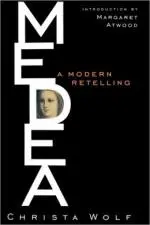 2. Medea
2. Medea
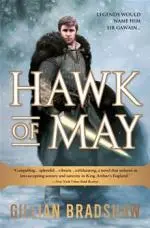 3. Morgause
3. Morgause
 4. Eleanor Iselin
4. Eleanor Iselin
 5. Charlotte Haze
5. Charlotte Haze
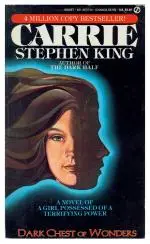 6. Margaret White
6. Margaret White
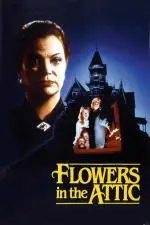 7. Corrine Dollanganger
7. Corrine Dollanganger
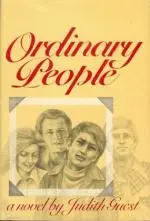 8. Beth Jarrett
8. Beth Jarrett
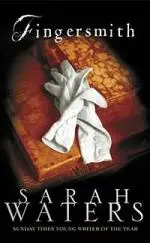 9. Mrs. Sucksby
9. Mrs. Sucksby
 10. Mary Jones
10. Mary Jones







